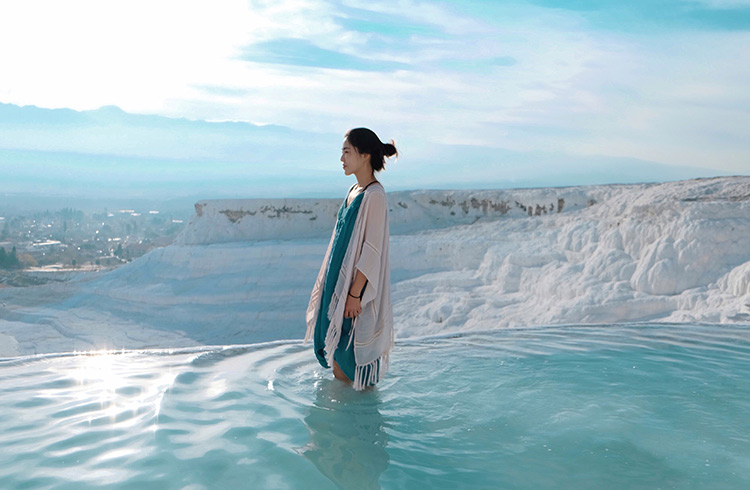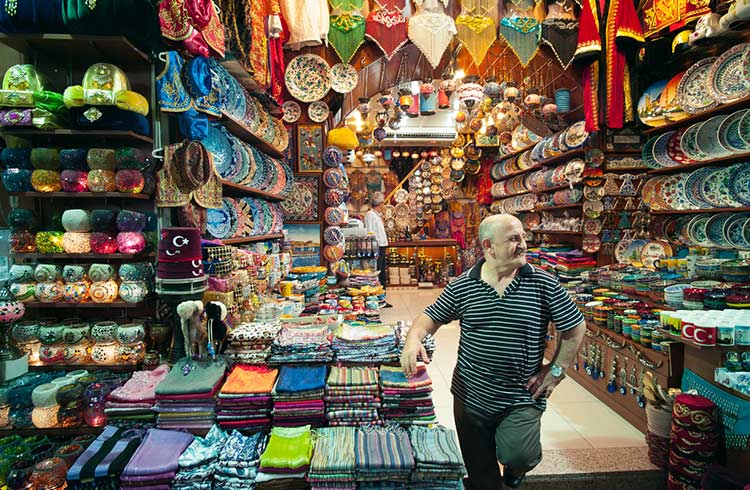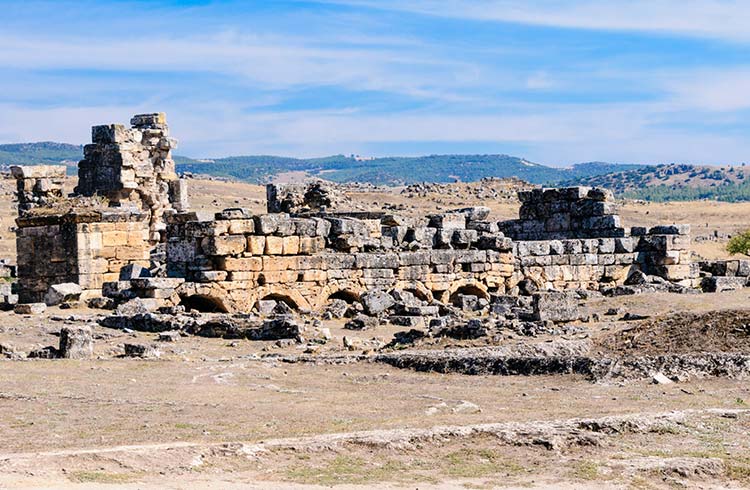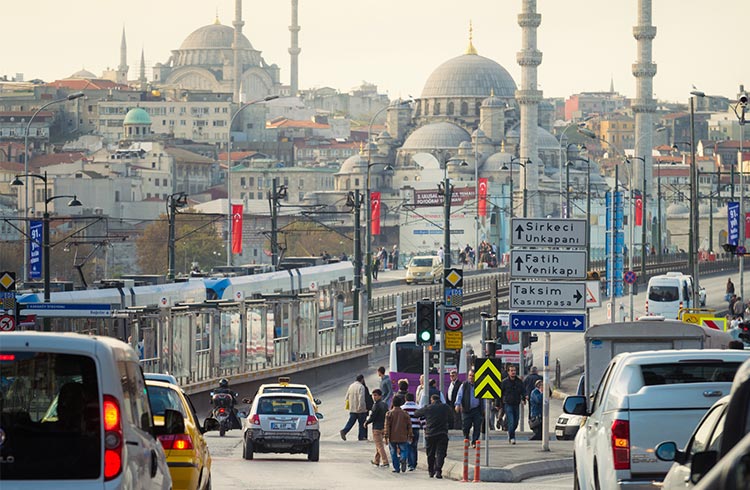Is Turkey Safe for Women Travelers Going Solo?
We share our common sense tips, plus handy advice for women to feel and stay safe in Turkey.
By Lisa Morrow,
World Nomads Contributor - Wed, 1 Jun 2022
 Photo © Getty Images/Kit Tan / EyeEm
Photo © Getty Images/Kit Tan / EyeEm
- What to wear in Turkey
- Tips for traveling around Turkey
- Accommodation in Turkey
- Dealing with unwanted attention in Turkey
- What to do to feel safe in Turkey
Here are our essential safety tips for women to stay safe while traveling alone or with friends.
What to wear in Turkey
- Take note of what Turkish women are wearing to get an idea of the local dress code. It differs depending on the area, with towns and villages often being more conservative than major cities, especially in central and eastern parts of the country. Wherever you go, covering more of yourself than less will show you respect local customs and help avoid unwanted attention.
- While it’s usually fine for to wear shorts and skimpy tops in beach areas and coastal towns, elsewhere you’ll be more comfortable in longer pants or skirts and T-shirts that cover your upper arms.
- Layering is the way to go. Make sure to have one or more scarves that can double as a head covering, mandatory for entering mosques. Carry one in your bag at all times so if you suddenly feel too many eyes on your neckline, you can drape it over your decolletage.
Tips for traveling around Turkey
- Buses are a popular choice for long-distance travel, offering clean, well-priced transport. Most major companies now offer a 2+1 seating configuration so ask to be seated in a single seat. When they’re all booked up, it’s normal to be seated next to another woman. Don’t be embarrassed to insist. The same goes for trains.
- When a seemingly random man tries to grab your luggage at an intercity bus station, don’t panic. He just wants to put it on the bus for you. Turkish women never carry their own bags.
- That said, try to pack as light as possible. You'll be more independent not weighed down by heavy luggage, and have more space for the souvenirs you’re bound to buy during your stay.
- Turks are very friendly and curious about travelers so be prepared to answer a lot of questions. However there’s no need to be specific about your travel plans or to give out the name of your hotel if you don’t want to. Just say you can’t remember.
- Turks love to give directions, even when they don’t know the right way. If you have to ask someone, ask three people and continue to check as you go along, otherwise you may find yourself going in the wrong direction.
Accommodation in Turkey
- Choose a hotel or pension in the tourist part of town where there are restaurants and late-night stores. This feels much safer than staying in alternative accommodation in residential areas and means you’ll have a shorter walk back to your accommodation after dinner.
- Be polite and friendly with male staff but don’t over do it. What you think of as normal interaction – smiling frequently and thanking them profusely - can be seen as an invitation for more.
Dealing with unwanted attention in Turkey
Regardless of age, women traveling alone in Turkey may find themselves the focus of insistent male attention. Here are some suggestions of what to do and say (or not, as the case may be) to help you handle these situations:
- Be selective when you ask for directions. Where possible choose a woman but if your only option is a man, try to ask a vendor in a small kiosk rather than a man in a shop. The former have to stay put while a shopkeeper can easily ask a friend to mind the store and then accompany you.
- Turkish people often stare at tourists, particularly in less touristy areas. When a Turkish man won’t stop looking at you, curb your natural reaction to stare back because they’ll take this as a come on. Wearing dark glasses can help you avoid accidentally meeting someone’s gaze, but it won’t stop them looking because your foreignness will already be obvious.
- Women of color, anyone dressed dramatically differently from the norm and women with blue eyes can be the focus of intense scrutiny. Blue eyes are frequently associated with women known locally as “Natashas”. Back in the early 2000s there was an influx of female Russia traders looking to buy and sell goods. When the economy failed some ended up working in the sex trade and unfortunately this stereotype is still prevalent in the popular press. When a man stares at you the best thing to do is to look away and ignore him. Turkey is a patriarchal culture and challenging every man who looks your way is unlikely to change anything. Women stare too and I always smile back because it opens up the chance to interact.
- Wearing a wedding ring and pretending to have a husband is often recommended for solo female travelers but it’s generally not very effective. Turkish women rarely travel long distances unaccompanied by relatives. When they do, they’re constantly on the phone to them.
- Men are very physically affectionate towards one another with no sexual meaning attached. However if you’re chatting with a guy at your hotel or in a shop and he casually drapes his arm around your shoulders, this isn’t part of the culture. Shrug off his arm immediately and/or move away, making your displeasure obvious.
What to do to feel safe in Turkey
It’s hard not to stand out as a tourist in Turkey and most of the time that’s OK, but here’s what to do if you’re feeling uncomfortable or unsafe.
- Walk with purpose and confidence even when you're not sure where you're going. Avoid going down dark, narrow streets and stick to brightly lit main roads.
- If you think someone is following you, stop and look in a shop window. Usually, it will be someone wanting to practice their English, but it’s better to be safe than sorry. If they say or do something you don’t like, enter the shop or look for a security guard at a bank and ask them for help.
- Some male bystanders catcall foreign women in Turkish. If this happens ignore them and keep walking. It’s unlikely, but if they do say something insulting in English don’t answer back. If you’re near your accommodation report them to reception. In tourist areas go to the tourist police and make a complaint.
- Most of the time the attention doesn’t run to more than staring and attempts at conversation. However, if you are feeling unsafe, make your discomfort known to bystanders by loudly saying “Çok ayıp!” (Very shameful) and point at the individual in question. You’re guaranteed to attract attention, the right kind, from Turkish people keen to see tourists have a safe and enjoyable stay in their country.
Related articles
Travel Insurance
Simple and flexible travel insurance
You can buy at home or while traveling, and claim online from anywhere in the world. With 150+ adventure activities covered and 24/7 emergency assistance.
Get a quote



No Comments